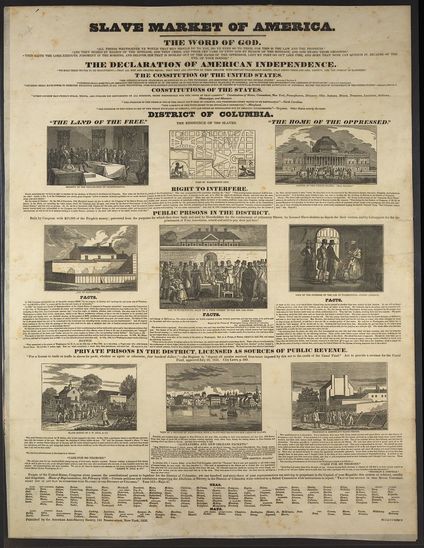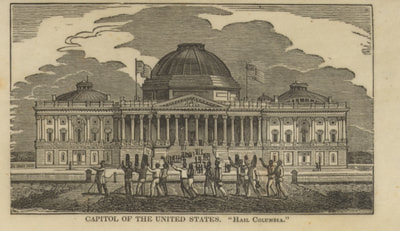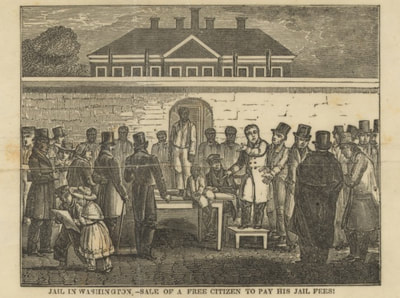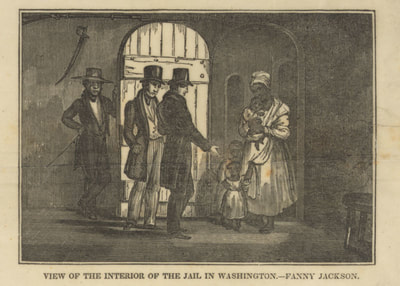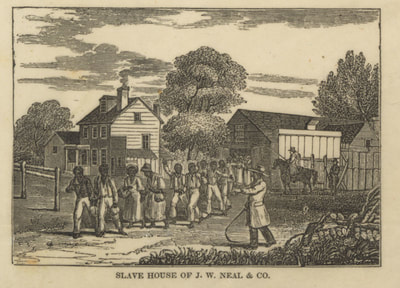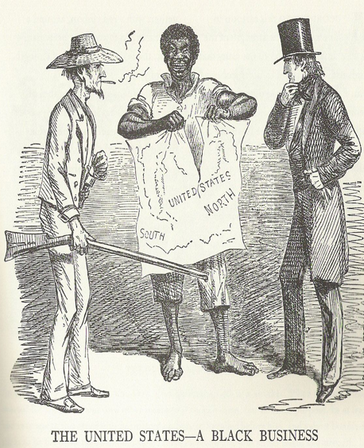Slavery in the Capital:
The passage of the Residence Act meant that the U.S. capital would be placed between two slave-holding states: Maryland and Virginia. While the deal ostensibly dealt with the issues of assumption and residence, it carried “the strong implication that the North would not raise serious objections to the institution of slavery,”[33] thus tremendously prolonging the issue.
The capital was placed where no professors from a university, no Quakers, no sophisticated financial operatives would rub against slaveholding natives Click for close-up images of American Anti-Slavery Society article
|
Future Compromises:
Due to its positive political consequences, the dinner-table bargain sent the message that compromising could fix any problem and prevent disunion. While this may have held true in 1790, such a precedent took the nation on a treacherous path when slavery became the central issue. Congress continued to believe that it could broker North-South compromises that would preserve the Union while avoiding the real problem: slavery. This was a disastrous strategy, culminating in the Civil War.

